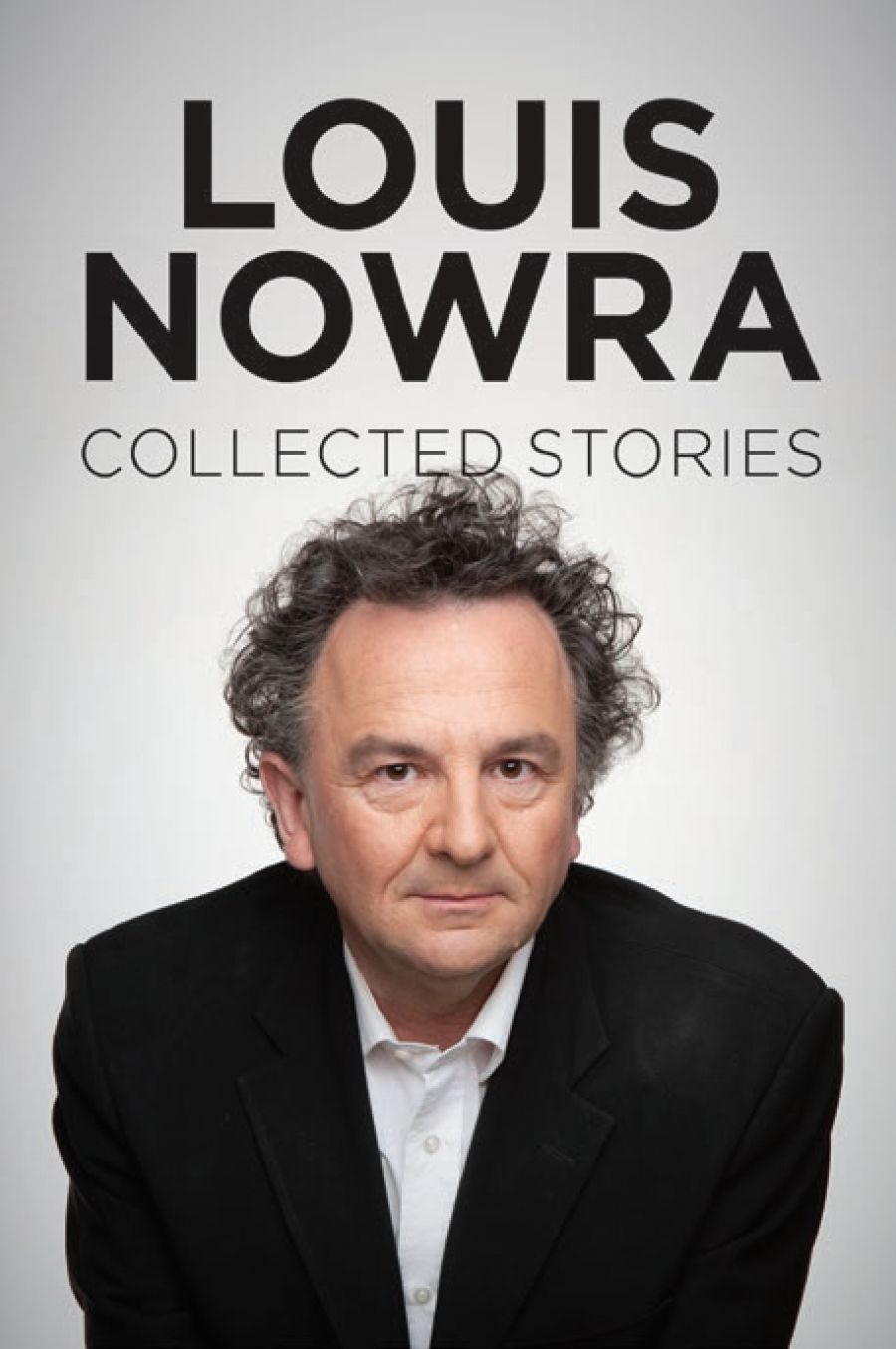
- Free Article: No
- Contents Category: Short Stories
- Review Article: Yes
- Online Only: No
- Custom Highlight Text:
Collected Stories is a misleading title for Louis Nowra’s new publication. It’s nothing as uniform as that. Apart from poetry, is there any genre in which Nowra has not made his mark? He’s a playwright, screenwriter, novelist, memoirist, local historian, essayist, reviewer, feature journalist – and the author of one enduring Australian gem in Così (1992), in all its multiple forms. Yet he has scouted out other territories and the results jostle together in Collected Stories. Such a title conjures up a lifetime’s labour in the genre – gatherings of Anton Chekhov or John Cheever or Alice Munro. But Nowra’s volume is essentially a ragbag of disparate writings.
- Grid Image (300px * 250px):

- Book 1 Title: Collected Stories
- Book 1 Biblio: Arcadia, $40 pb, 331 pp
For example, we’ve got a Young Adult novel, a hundred-page satire on Sydney society, four pages on how to kill and cook rabbits (which may or may not be a spoof), ‘Ten Anecdotes About Lord Howe Island’ (which may or may not be historical), an imagining of a dark moment in Alfred Deakin’s later life, and two short stories, undoubtedly so because they were published in 1985 in Overland and Southerly.
Different breeds of larrikin dominate the pages, and I sense that’s the company where Nowra is most at home. For one thing, it allows for all sorts of cheeky throwaway mots whose ownership, you suspect, might be shared equally between Nowra and his characters. We get ‘jobless actors whose commitment to animal rights is based on the fact that directors treat them like cattle and they identify with dumb animals’, and feminism ‘is merely the continuation of the ancient war between the sexes, only this time one side has an ideology’.
 Louis Nowra (photograph by John Webber/Allen & Unwin)
Louis Nowra (photograph by John Webber/Allen & Unwin)
Comedy seems Nowra’s forte, but this collection shows his readiness to try anything rather more than it demonstrates any outstanding success in one or another mode. At least part of the reason for this must be a lack of editorial input. The giveaway is the slovenly proofreading; time and again whole words have just dropped out. More substantially, however, pieces don’t realise their potential: the initial idea is good, but it’s never twisted or taken up to a new level. There is too much bloat – too many repetitions of similar plot episodes – and a certain tedium sets in. ‘Murdering the Wardrobe’, for example, is a thirty-eight-page account of an American film producer in Moscow researching a movie about a Soviet nuclear-submarine disaster. The story details his dealings with a Russian interpreter who’s been hired to set up meetings with the submariner survivors. The man is incompetent, a liar, an alcoholic, and a thief. Within five pages all four qualities are clear to the reader, but the narrator only notices on the last page. As a character, he has been utterly naïve, passive, putty in the hands, etc. The cycle of adjourning to bars and non-event interviews makes the reader want to scream at the narrator for being such a dope or, more fairly, at Nowra for wanting us to accept such a spineless ingénu as a seasoned movie producer.
The most successful piece is the Lord Howe anecdotes. There doesn’t seem to be any other voice than Nowra’s own, and the telling is sober, finely gauged Australian yarning.
‘The Realm’, the book’s second-longest piece at seventy-four pages, is best read as a Young Adult novella. A fourteen-year-old girl, fat, bullied, and with issues at school, is parked by her actress mother on an otherwise deserted island with her mother’s ex, a man the girl has hardly met. Whoa! Not a good move. But Nowra doesn’t go down that dangerous, if obvious, path. Instead, his book is part dystopian thriller, part Alice in Wonderland underground adventure, and part Bildungsroman helped on by a cyclone. General mood, you could say, serious to grim.
Then Nowra follows immediately with a satirical romp for ninety-seven pages, and it’s very funny. ‘The Wedding in Venice’ is a lightly fictionalised and embroidered version of the 1990 Sydney succès de scandale when a gay Qantas flight attendant became engaged to Primrose ‘Pitti Pat’ Dunlop. The tie that bound was the groom-to-be being ‘Prince Giustiniani, Count of the Phanaar, Knight of St Sophia and Baron Alexandroff’. He was also, more provably, a Vietnam veteran, having served there in 1967 as a lance corporal in the 8th Field Ambulance. He was, by numerous accounts, a kind, thoughtful man, popular in his job.
The wedding was about to take place in Venice when the groom ran off with his best man, his ‘best friend’ from their days together in Vietnam. Nowra’s story should be read in tandem with the account on the Sydney Morning Herald website, unsigned but probably by the supremely tart gossip writer Daphne Guinness. Nowra’s debt to the facts is undisguised; his priest for the story is a Father Bliss. The original was Father Vincent Kiss, who got eight years for fraud in 1992 and topped this with nine years for paedophilia in 2002. Nowra’s groom, Cosimo, a hotel concierge, remains true to his original; while his motivations and affections are still enigmatic, he is the sole non-despicable character in Nowra’s story. But ‘The Wedding in Venice’ certainly goes beyond a journalistic retelling. This time Nowra does give a twist to the ending, and he extends the farce with the creation of both a boorish father of the almost-bride and of a narrator, a gay male gossip writer and restaurant reviewer. The story is overlong but a good yarn – a quintessentially Sydney one.


Comments powered by CComment